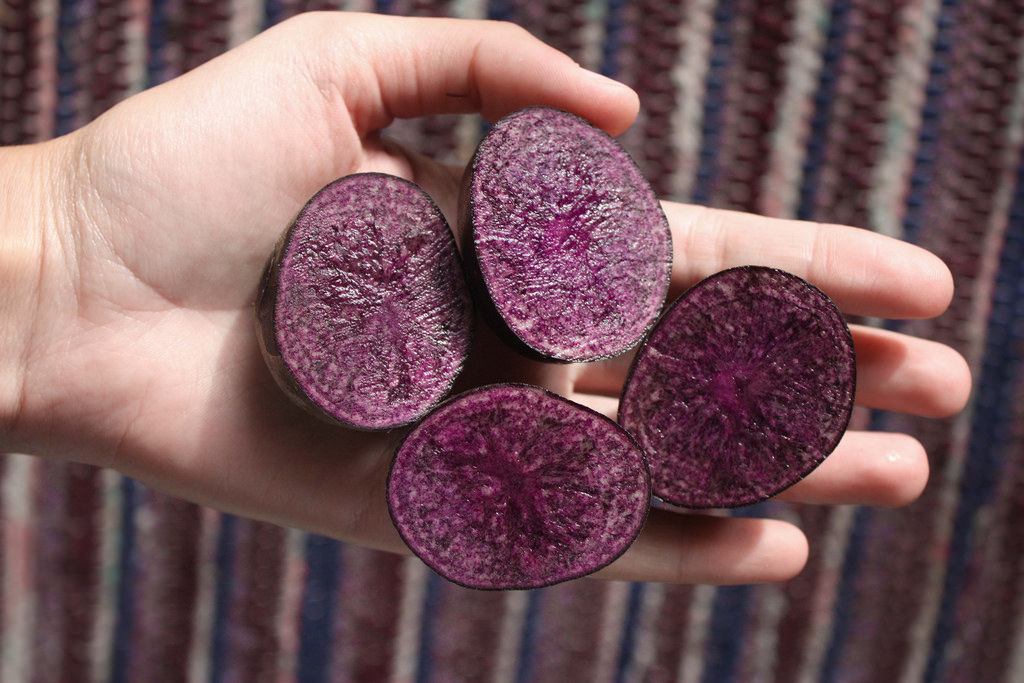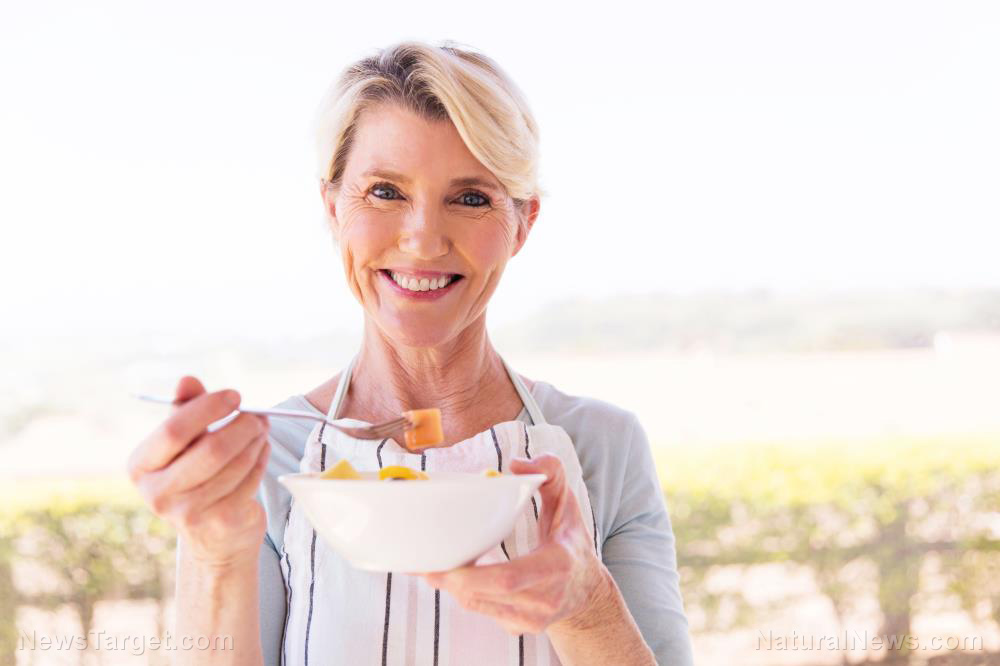Cancer and chronic disease: YOU make it better or worse, depending on what you eat, according to yet another study
02/10/2019 / By Ethan Huff

The disease industry is constantly trying to get the public to wear colorful bracelets and t-shirts, run in races, and even buy more fried chicken in order to “end cancer” once and for all. But what they never seem to tell people is that cancer and other forms of chronic disease are entirely preventable, and that a big part of what determines this is what people consume on a daily basis.
A new study published in the Journal of Nutritional Biochemistry illustrates this perfectly. It found that mammals whose diets were supplemented with purple-fleshed potatoes had far lower levels of inflammation in their bodies than mammals that ate a standard barnyard diet – purple potatoes containing key nutritional constituents like phytonutrients, vitamins, carotenoids, and flavonoids that help to protect the body against degenerative breakdown.
Because of their rich density of these and other macronutrients, which are the very same substances that humans need from whole foods in order to stay healthy and fit, the purple potatoes were found to decrease levels of colonic mucosal interleukin-6, or IL-6, a type of protein that is directly associated with inflammation. Chronic inflammation, it turns out, is now widely considered to be the root cause of many diseases, including diabetes, arthritis, and cancer.
“What we are learning is that food is a double-edged sword – it may promote disease, but it may also help prevent chronic diseases, like colon cancer,” says Jairam K.P. Vanamala, one of the authors of the study and an associate professor of food sciences at Penn State University (PSU). “What we don’t know is, ‘how does this food work on the molecular level?’ This study is a step in that direction.”
Macronutrient-dense whole foods found to help prevent growth, spread of cancer cells
Vanamala and his team focused primarily on purple potatoes as just one example of a whole food rich in macronutrients that offers powerful protection against chronic disease. They noted that in cultures that consume plant-based diets rich in purple potatoes and other nutrient-dense foods, chronic disease rates are notably lower, specifically with regards to cancer – and even more specifically with regards to colon cancer, which is the second leading cause of cancer-related deaths in the United States and other Western countries.
Throughout the West, many people consume diets rich in processed foods that have been stripped of their nutritional fortitude, leaving them prone to deficiency and associated disease. But in areas of the world where whole food diets are prevalent, disease rates are notably lower, which Vanamala and his colleagues see as being directly correlative of a strong connection between what people eat and how likely they are to get sick.
Consider that the very same inflammatory IL-6 protein that purple potatoes help to minimize also inhibits other disease-causing proteins like Ki-67. Ki-67, as noted in the study, is directly associated with the growth and spread of cancer cells, which means that keeping it at a minimum as part of a plant-based, whole food diet can directly prevent the formation of cancer. And it is not just purple potatoes that can do this: it is really all colorful fruits and vegetables, which each contain their own unique combinations of bioactive, cancer-preventive compounds.
“We use the purple potato as a model and hope to investigate how other plants can be used in the future,” says Vanamala. “If this model works, we can see what works in other countries. Instead of promoting a pill, we can promote fruits and vegetables that are very rich in anti-inflammatory compounds to counter the growing problem of chronic disease.”
Sources for this article include:
Submit a correction >>
Tagged Under:
diet, disease, fightobesity, functional foods, longevity, prevention, purple potatoes
This article may contain statements that reflect the opinion of the author
RECENT NEWS & ARTICLES
LongevityScienceNews.com is a fact-based public education website published by Longevity Science News Features, LLC.
All content copyright © 2018 by Longevity Science News Features, LLC.
Contact Us with Tips or Corrections
All trademarks, registered trademarks and servicemarks mentioned on this site are the property of their respective owners.




















